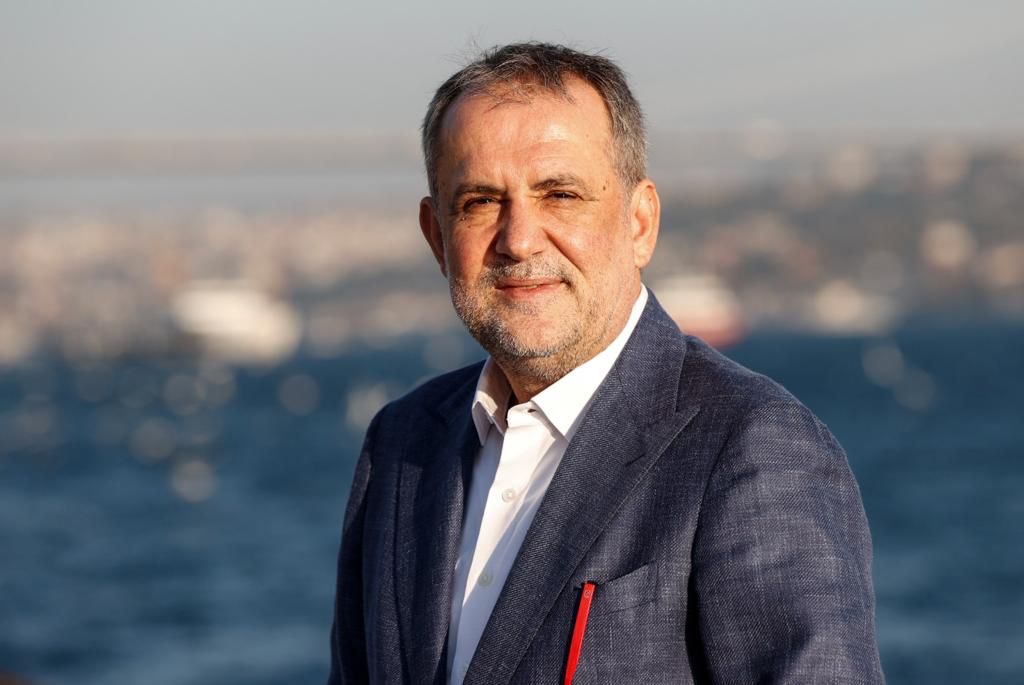Air pollution, also known as the silent killer, causes 7 million people to die prematurely every year.
The air we breathe is one of the main factors affecting our quality of life. An adult inhales an average of about 11,000 liters of air per day, which is roughly the amount to fill a small pickup truck. That is why air is an indispensable part of life. Of course, when breathing, besides air, people also inhale airborne pollutants that they cannot see and this is what causes many diseases and ailments.
According to data from the World Health Organization (WHO), 7 million people die prematurely every year due to ailments related to air pollution. Air pollution does not have an instant or visible effect like other types of pollution. The pollutants being inhaled exceed the threshold amounts over time, leaving visible and permanent physical damage. For this reason, again, air pollution is referred to as a “silent killer” by the WHO.
Population growth, expanding cities and people’s ever-increasing demand to live comfortably also increase the need for energy in areas such as heating, cooling and lighting. More energy supply means more fuel consumption and therefore more air pollution. Due to this, air pollution is rising on the list of top environmental issues to be managed.
First legal regulations: Air
Coal, widely used for energy production in the United Kingdom, which is known as the cradle of the Industrial Revolution, has caused a lot of air pollution. Due to increasing public reactions, the first written legal regulations on air management were implemented decades ago. The Border Smog Reduction Act of 1926 was followed by the Clean Air Act of 1956, which was enacted mainly in response to the “Great Smog of London” in 1952 that would kill thousands of people a quarter of a century later. This law, which also forms the basis of the clean air law of the European Union, is the first example of environmental regulation on a regional basis.
Since it has no boundaries and is in constant motion between mountains, seas, buildings and roads, air pollution becomes one of the most challenging environmental issues to manage. Air pollution is carried thousands of kilometers away from its origins due to the increasing use of fossil fuels in basic areas such as industry, transportation and heating as well as the inadequacy of purification technologies and meteorological factors such as wind. With air pollution growing in global importance, the U.N. Convention on Long-Range Transboundary Air Pollution (LRTAP) was signed in 1979, marking the first time environmental legislation was prepared in a global context.
Air quality in Türkiye
Air quality was also the first theme studied from a legal standpoint in Türkiye. The “Regulation on the Protection of Air Quality,” prepared based on Environmental Law No. 2872, published in 1983, was put into action in 1986 and became the first area to be studied in detail in this context.
Air pollution is one of the most critical issues across the world. During the two years Turkish people spent behind their masks during the pandemic, they realized the importance of breathing clean air. With the call to ”Stay at home Türkiye” life slowed down in the country, providing the parameters for an experiment not even air quality experts could design as the usual sources of pollution were reduced to a minimum. Turkish people were even able to easily see the Uludağ Mountain in Bursa from Istanbul on some days. This period showed them how nature maintains its balance when there are no sources of pollution.
Electricity and heating, which are used for Türkiye’s developing industry and everyday needs with its increasing population, are one of the most important factors of air pollution. Air quality deteriorates as the natural component of the air changes due to pollutants. The Ministry of Environment, Urbanization and Climate Change determines the limits of air quality and continues its efforts to ensure Turkish citizens breathe clean air within these limits.
Pitching in
In order to keep the air quality at the optimum level, the ministry is trying to control the air pollution caused by industry, transportation and heating. It is making legislative arrangements and leading practices in this field. Local governments also have important duties in the implementation of legislation. It is seen that clean air can be maintained if local governments follow the right practices, especially starting from the planning stage of the city regarding the management of pollution caused by transportation and heating.
Türkiye expects all individuals to contribute to keeping the air clean by choosing ways of travel that create zero or fewer emissions such as walking, cycling and public transportation instead of using private transportation. These are among the first things they can do. Again, in winter, using clean and environmentally friendly fuels for heating, maintaining combustion systems, not increasing the ambient temperature too much and insulating your home are practices that can be done on an individual level.
Historic steps
The ministry has increased the number of systems that continuously monitor air quality to better represent the pollution of the city from only eight in 2002 to 360 in 2022. The data obtained from the monitoring systems is shared with Turkish citizens instantly via its website. The chimneys of industrial facilities with high levels of pollutants are constantly monitored. With the monitoring system, called the continuous emissions measurement system (CEMS), the chimneys of plants with emissions exceeding a certain level are monitored.
The air quality is not only measured and monitored. A software that detects the source of pollution and allows people to determine measures according to Türkiye’s national budget has also been implemented. With the Air Emission Management (HEY) portal, Türkiye manages all air pollution sources throughout the country using a common and transparent database. The HEY portal has the ability to run scientific air quality models through software to set an example for the world. On the HEY portal, data from 10,700 industrial facilities across the country that have received environmental permits are registered. Citizens can find out the specific contributions of industry, transportation and heating sources to air pollution in their provinces. In coordination with the governorates, clean air action plans and actions aimed at managing these resources are determined and their implementation is monitored by the ministry.
With the NEFES software, which is developed with local and national technology and uses the outputs of the HEY portal, the direction and speed of the wind can be seen on 3D digital replicas of our buildings and cities, as well as small-scale pollution sources such as wind corridors, intersections, lighting systems, certain slopes, traffic density, bakeries, restaurants and more. The NEFES software was successfully implemented in 25 provinces and has been spread to all of Türkiye’s provinces. With these tools, which can monitor the pollution status and source instantly, the application power of the ministry has increased.
When the change in air quality is evaluated over the years, it is seen that Türkiye has already left the 1990s, a time when forced masks were used due to the smell of coal, with investments in the expansion of natural gas. The fact that the sulfur dioxide pollution associated with solid fuels remains at fairly low levels is an indicator of this change. However, across all 81 provinces, the rate of natural gas being used in heating is still not at the desired level. Some citizens continue to use solid fuel in heating even though the natural gas line is within their reach.
The ministry is able to follow the lifecycle of all solid fuels imported into the country and produced in the country with the HEY Portal Solid Fuel Module. As of 2021, the ministry has e-signed the manufacturer, distributor, seller registration and sales permit documents that were previously issued with wet signatures and issued a total of 16,190 documents. With this data, the provinces can be evaluated in terms of solid fuel use.
Support for transformation
Pollution cannot be dispersed and accumulates in the cities due to natural factors such as having a dish-shaped topographical structure, which is a common issue in many Turkish cities, and inversion which comes into effect in the winter. For this reason, air pollution is becoming a problem that needs to be tackled locally.
The ministry has provided financial support to local governments to improve air quality and eliminate environmental pollution. In addition to bicycle paths, green walking paths and environmentally friendly street applications, the ministry also contributes to studies on the use of fuels that have less potential for pollution, especially in heating. In this respect, the heating systems of 1,108 houses in the historical Mevlana district of Konya have been replaced, switching from solid-fuel stoves to natural gas-fired boilers for the first time. The comfort of clean heating has been provided to families who are in need of help. Later on, the families were visited to inspect the installed systems were up and running.
With the project that was implemented in Konya, 1,200 tons of pollutants, especially nitrous oxide, sulfur dioxide and dust (PM10 and PM2.5) as well as 5,400 tons of greenhouse gas emissions of carbon dioxide were prevented. Similar to this project, the ministry has rolled up its sleeves in Düzce, Malatya and Gaziantep. Local governments were guided by the data provided by the air quality management tools mentioned above across a selection of housing units.
The ministry also focuses on the industrial and transportation resources of the provinces by providing financial support to improve air quality and determining what needs to be done step by step with emission management reports.
Green transition in heating
A workshop on the Green Transformation in Heating was held in Ankara on May 17-18 under the name “transformation in air quality.” In the workshop, we discussed the future of Türkiye within the scope of district heating, industrial symbiosis and circular economy in order to minimize economic loss. We also looked at the best examples of industrial waste heat and geothermal heat and consulted on what needs to be done, listening to the examples of zero-emission heating applications.
Türkiye is the fourth in the world in installed power in geothermal energy and the leader in Europe, thus it is an important resource that can be used in city heating as it is already used to heat more than 100,000 homes. In this way, the use of fossil fuels in the heating of these houses is prevented and both air pollution and climate change are effectively combated. In addition, by taking advantage of the country’s local facilities, external dependence is also prevented. The number of zero-emission houses is aimed to increase.
In the workshop, we also received the contributions of valuable academicians and relevant sector representatives on the topics of heat pumps, coal gasification technologies, hydrogen as the fuel of the future, and the availability of solar energy in heating. By the end of the year, we will have completed the Green Transformation Strategy Document in Heating with the contributions of all relevant institutions, especially the Ministry of Energy and Natural Resources.
After completing the “transformation in air quality” workshop series for transportation and industry, it is aimed to share the outputs with the public at the Clean Air Summit, which will be organized on Sept. 7, World Clean Air Day.
Heating in buildings is also an important greenhouse gas emission contributor that also leads to climate change. With this thought, it is clear that the green transformation in heating will also make a great contribution to the 2053 net zero emission target announced to the world at the 76th U.N. General Assembly by President Recep Tayyip Erdoğan.
Let’s not forget: you need fresh air to live a quality life.
BY MEHMET EMIN BIRPINAR – İRDE ÇETINTÜRK GÜRTEPE


